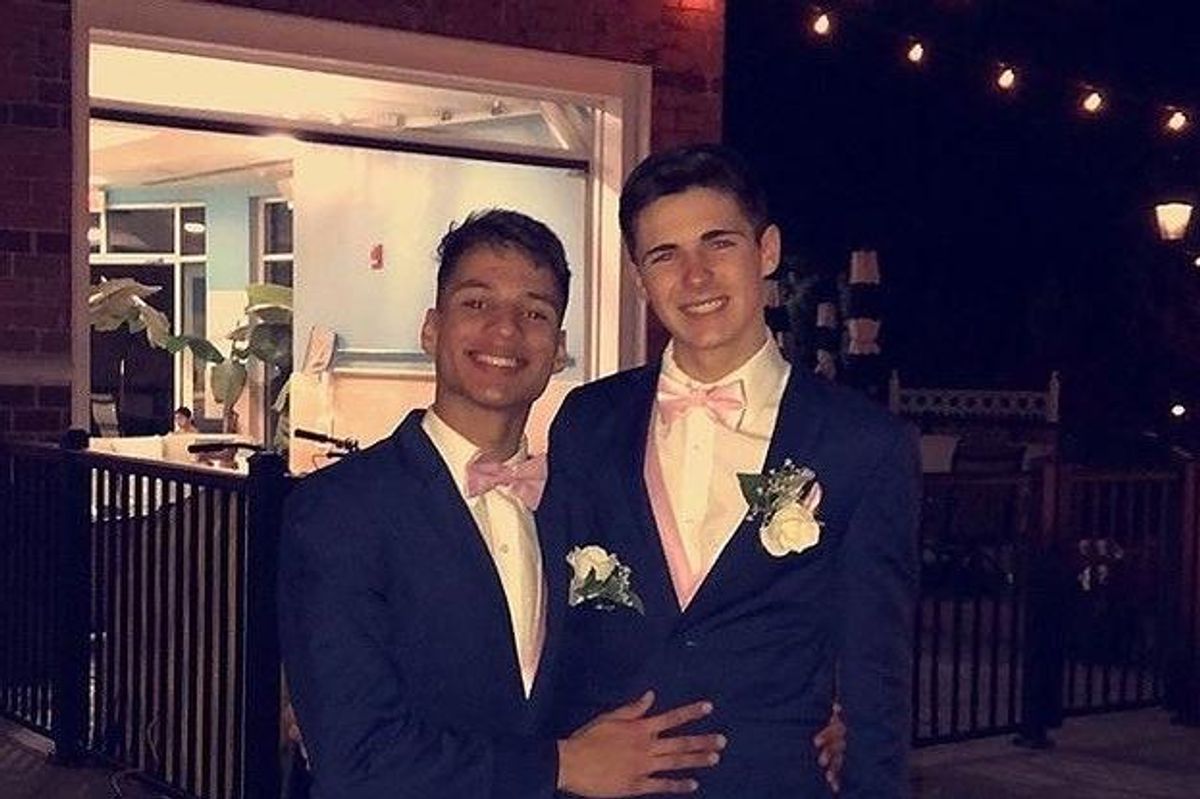Young girl who had the cops called on her for studying lanternflies wins a major award
“We were thrilled that she was doing that.”
Body cam footage of the police approaching 9-year-old Bobbi Wilson and her mother.
On October 22, 9-year-old Bobbi Wilson was excited to go out into her Caldwell, New Jersey, neighborhood to see if a mixture she put together would be effective at killing spotted lanternflies. She had learned about the dangers that the lanternflies pose to the local tree population during the summer and created an insecticide that she learned about on TikTok.
Spotted lanternflies are an invasive species dangerous to trees because they feed on their sap.
“That’s her thing,” Wilson’s mother, Monique Joseph, told CNN. “She’s going to kill the lanternflies, especially if they’re on a tree. That’s what she’s going to do.”
While Wilson was peacefully working on her sustainability experiment, her neighbor, Gordon Lawshe, called the police on her. “There’s a little Black woman walking, spraying stuff on the sidewalks and trees on Elizabeth and Florence. I don’t know what the hell she’s doing. Scares me, though,” he said, according to CNN.
Lawshe told the dispatcher she was a “real tiny woman” and wearing a “hood.”
When the police arrived, they were calm and did their best not to upset the young girl. They assured Wilson and Joseph that they had done nothing wrong. But the mother couldn’t believe that the police were called on them by a neighbor they knew.
“Mr. Lawshe told Mrs. Joseph that had he known that it was her daughter that he had seen, he certainly would not have called the police. Mrs. Joseph did not accept Mr. Lawshe’s apology," Lawshe’s attorney, Gregory Mascera, told CNN.
\u201cGordon Lawshe from #Caldwell, #NJ. Called the cops on a 9 year old black child for killing lantern flies. They are next door neighbors. And when calling the police she referred to this child as a \u201ctiny woman\u201d . Please RT\u201d— ayamkana (@ayamkana) 1670165710
Rebecca Epstein, the executive director of the Georgetown Law Center on Poverty and Inequality, says that the incident may have been an instance of “adultification bias” where young Black girls are treated like they are much older than white girls of the same age.
“It’s a very pervasive form of bias that does not know boundaries, in terms of which fields it occurs in. In emergency rooms, we’re seeing it affect the treatment and diagnosis of Black girls. In schools, we’re seeing it come up in the form of harsher and more frequent discipline against Black girls,” Epstein said in an interview with CNN.
The fact that a 9-year-old girl had the police called on her for any act is a depressing sign of the times in America. But thankfully, that’s not the end of the story. In the aftermath of the incident, a community of people stood up for Wilson and praised her for her dedication to sustainability.
A group of Black female scientists at Yale hosted Wilson and her family in November. She toured various laboratories and was invited to submit lanternfly specimens to the university's entomology department.
\u201cI want to specifically thank Bobbi's mom @MoniqueAJoseph, her sister Hayden, and their dad for being so brave in standing up for justice for Bobbi. These past few weeks have not been easy for the family but their resilience and strength is truly inspiring\u201d— Dr. Ijeoma Opara (@Dr. Ijeoma Opara) 1668719360
The Association of New Jersey Environmental Commissions honored Wilson with its Sustainability Award after it learned about her work with spotted lanternflies.
“We were thrilled that she was doing that,” Ann Marchioni of the ANJEC told the Daily Beast.
Wilson was given the award on Tuesday, December 6, and science communicator Jason Bittel was on hand to talk about spotted lanternflies and how he got into science writing.
“When I saw what happened with Bobbi, my heart immediately just sank," Bittel said, according to New Jersey Hills, "because what I saw in her I was doing as a young boy. We were celebrated, if anything, no one called the police on us or chided us in any way."
\u201cDespite the turmoil that Bobbi Wilson's family initially endured, her mother acknowledged that they have been able to persevere.\n\n\u201c[We\u2019ve] been blessed with the positive side of it,\u201d she said, explaining that she saw the ordeal as a spiritual experience. https://t.co/BDGEAlpmGW\u201d— The Daily Beast (@The Daily Beast) 1670723404
Bittel said that Wilson’s dreams could have been crushed the day the police were called on her. But the community stepped up to preserve her passion for science. To promote her interest in science, Bittel presented Wilson with a tub full of interactive materials and gave books to her mother so her daughter could learn more.
"When this incident originally happened, I had one goal. It was to change the trajectory of that day for Bobbi," Joseph said. "I can't say I've done it all myself. It wasn't just me, it was the community. … It was friends near and far that understood what happened."
This article originally appeared on 12.13.22





